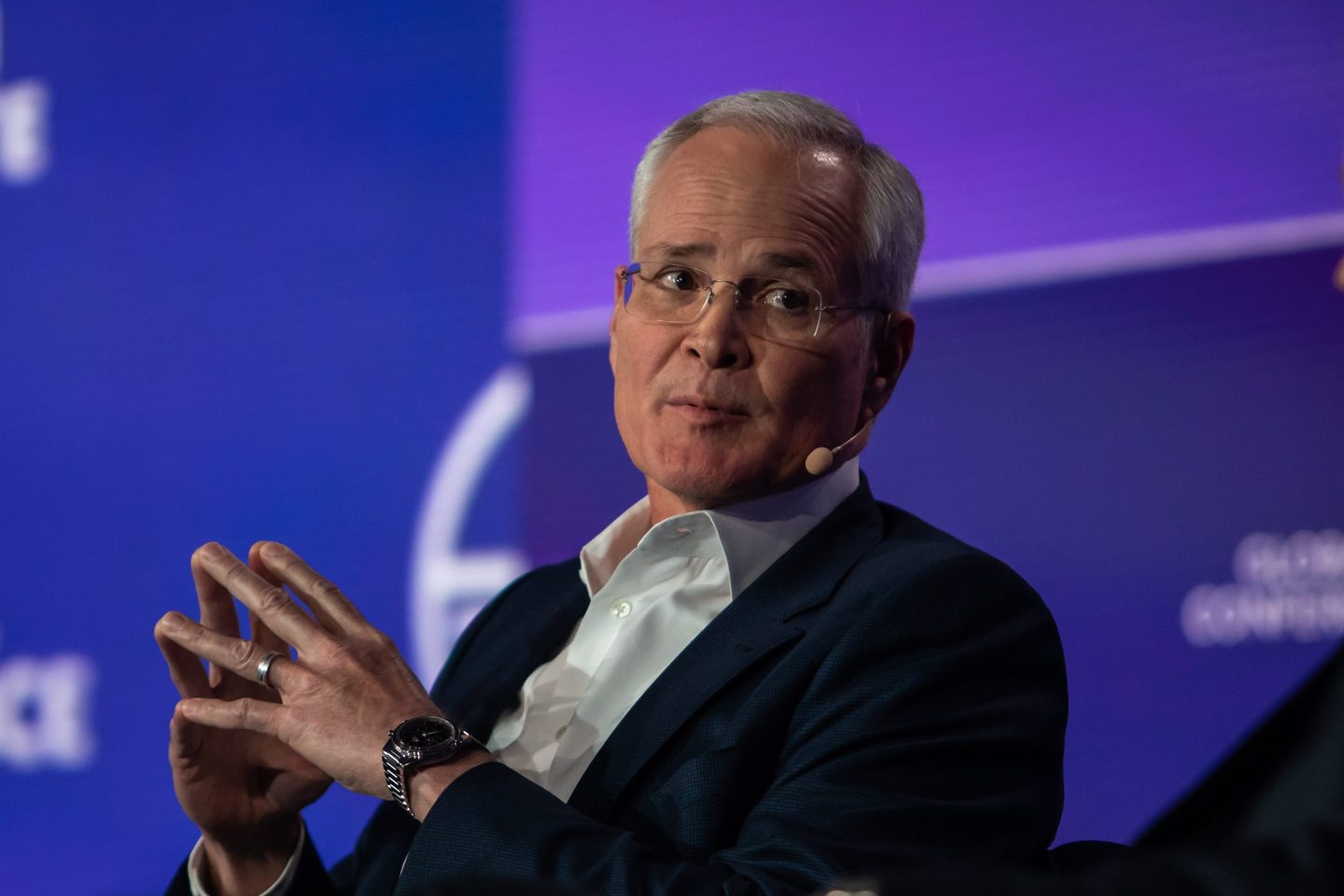In 2017, Anne-Marie Slaughter, CEO of think tank New America, faced public scrutiny following the firing of Barry Lynn and 10 of his colleagues. Lynn claimed he was fired for criticizing Google and pushing for stronger antitrust enforcement. Eric Schmidt, executive chairman of Google’s parent company, Alphabet, was one of New America’s biggest funders.
“In the hushed hallways of progressive Washington think tanks, such an allegation is analogous to treason, a betrayal of the fundamental values of independent research, analysis, and policy formulation,” the Washington Post wrote in its review of Slaughter’s book Renewal: From Crisis to Transformation in Our Lives, Work, and Politics, which recounts her experience and the lessons she learned dealing with the public and private controversy.
“The accusation was neither accurate nor fair, either with regard to New America or to the funder,” Slaughter writes in the book. She denies Lynn’s allegation, “but it was calculated, successfully, to create a media storm and to put New America and my leadership in the worst possible light.”
Renewal is also a deep dive into how Slaughter’s leadership style evolved in the aftermath, and how owning one’s missteps and shortcomings are vital to moving forward. While most people likely won’t face such a public reckoning, Slaughter’s book provides advice that can be applied to anyone’s career.
Learning to share the power
Over her decades-long career, Slaughter served as the head of policy planning at the U.S. State Department under President Obama; the president of the American Society of International Law; and the dean of Princeton University’s School of Public and International Affairs; she’s also written several books. Slaughter had two very specific reasons why she wanted to write Renewal, an often unflattering account of that moment in New America’s history.
“The first is that desire, once I’d come through the crisis, to learn from it, and see if there were lessons I could offer others,” she told Fortune on Wednesday, adding that she wanted enough distance from the events to be able to tell the story honestly.
“I was [also] thinking about the lengths between personal and national renewal,” she said. “When I got the opportunity to write a short book on the topic, I wanted to try and put these themes together.”
One of Slaughter’s most vital takeaways: Spreading power across a team won’t necessarily protect against poor decision-making, but it will certainly decrease the odds of calamity.
“Many of the lessons I’ve learned have to do with sharing power and recognition, which should seem obvious,” she said, adding that women, in particular, have been socialized to believe that being the public face of a company is a traditional hallmark of leadership.
An individual shouldn’t seek to become synonymous with the company they founded or lead, Slaughter argued. This creates a risky public perception; as with Mark Zuckerberg at Meta or Elon Musk at Tesla. When people associate one fallible individual with a billion-dollar company, it doesn’t take much to lose faith.
Slaughter hopes that when people think of New America, they don’t think just of her, but of her many smart colleagues, including Cecilia Muñoz, one of its senior advisers, or Kevin Carey, its VP of education policy and knowledge management, or Peter Bergen, its VP of global studies and fellows.
“Power is not an infinite good,” she said. “When it’s shared, the results are remarkable.” Still she acknowledges that organizations can’t run without some hierarchy.
“Government by consensus is a nightmare,” she said. “But if you have the right team, really sharing power among a group of people, even if there’s a formal hierarchy, is an effective way to lead.”
Plus, she added, “sharing responsibility makes leadership more fun.”
Owning your wrongs—publicly
Another one of Slaughter’s new dogmas: Leadership means having to say you’re sorry.
“I actually believe that you can be stronger, better, and more confident owning your errors,” she said.
Everyone, she said, should face their own shortcomings and flaws openly. Plus, she added, she’s at a point in her career where she’s secure enough that if the book skews the public’s perception of her, “so be it.”
As for non-CEOs who make a sizable mistake of their own, Slaughter recommends a different approach.
“I wouldn’t necessarily tell all of them to write an email to the whole organization reciting their faults,” she said with a laugh, referencing her move in 2017. “I would tell them to pursue a path of radical honesty, first with themselves. It’s so tempting to shade the truth, to think, ‘Well, I really wasn’t responsible,’ or ‘Someone else did something.’”
Run toward criticism
To that end, the best advice Slaughter said she received came from David Bradley, chairman of Atlantic Media, who told her to run toward the criticism.
“Think about a performance review where you’re trying to figure out how to tell someone who doesn’t want to hear it how they could improve. If they go in with the attitude that they’re going to run toward the criticism, and grow and learn, it really flips it. ”
Rather than waiting for board members to tell Slaughter what she did wrong in wake of the Google fallout, she approached them and asked for feedback. “It wasn’t easy, but it allowed me to take charge,” she said. “To do that, you have to be ready to hear it.”
This run-toward-criticism approach can be useful for managers navigating sometimes complicated intergenerational workplaces, too, Slaughter said.
“An old truth about leaders who get too powerful: They create echo chambers,” she said. “It’s absolutely essential, now more than ever, given generational differences in the workforce. You have to be able to hear unpleasant truths about experiences of people across the organization—especially when they’re very different from what you experienced.”
Practicing grace
The generational differences are a particular point of focus for Slaughter, who says millennials are encountering a radically different world than her generation faced.
“If I want to recruit and retain those folks—and I do—I really have to try to hear what they’re experiencing,” she said. “I don’t have to do everything they say, but I’ve got to give them a real opportunity to be heard.”
Another key to bridging a generational divide: practicing grace. “We’re in a time when it’s so easy to offend, really unwittingly, in so many ways,” she said. “It’s hard for young people to understand how dramatically social mores have changed.”
She quotes Loretta Ross, an activist professor of women and gender studies at Smith College, who advocates for “calling in” rather than “calling out.”
“When someone makes an error, and you’re offended, rather than calling them out, consider it an opportunity for a teachable moment,” Slaughter said. “There are ways to turn that into, ‘Wow, I didn’t realize you heard it that way.’ I think of that as practicing grace.”
Never miss a story: Follow your favorite topics and authors to get a personalized email with the journalism that matters most to you.











